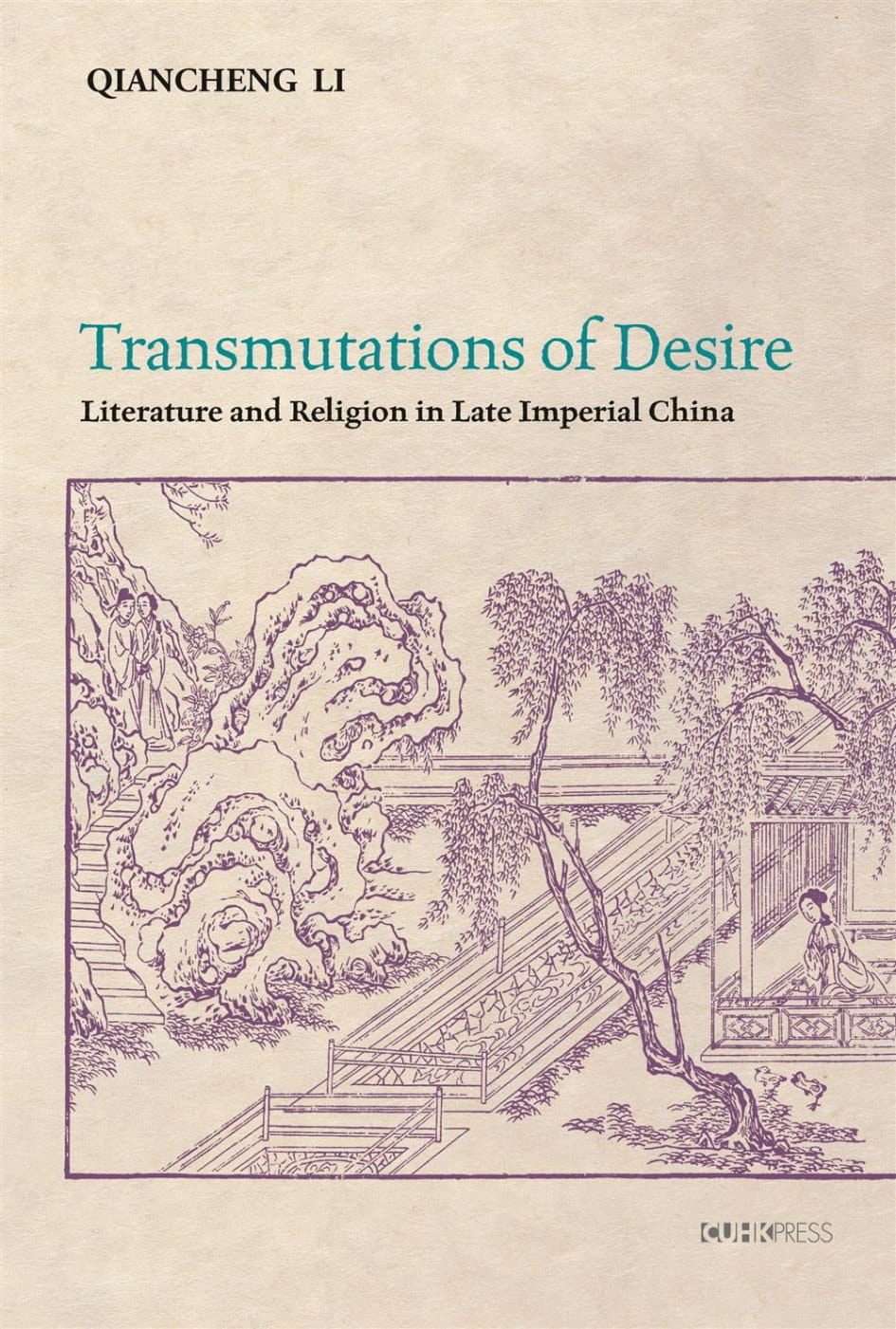- 定價64.00元
-
8
折優惠:HK$51.2

|
|
|
|
Transmutations of Desire:Literature and Religion in Late Imperial China
|

|

沒有庫存
訂購需時10-14天
|
|
|
|

|
|
9789882371224 | |
|

|
|
Qiancheng Li | |
|

|
|
香港中文大學 | |
|

|
|
2020年11月01日
| |
|

|
|
552.00 元
| |
|

|
|
HK$ 496.8
|
|
|
|
|

| |
|
|
|
|
| |
|
|
詳
細
資
料
|
ISBN:9789882371224規格:精裝 / 316頁 / 15.2 x 22.9 x 4.42 cm / 普通級 / 單色印刷 / 初版出版地:香港
|
|
分
類
|
社會科學 > 文化研究 > 文化人類學 |
同
類
書
推
薦
|
|
|
內
容
簡
介
|
In the West, love occupies center stage in the modern age, whether in art, intellectual life, or the economic life. We may observe a similar development in China, on its own impetus, which has resulted in this characteristic of modernity—this feature of modern life has been securely and unambiguously established, not the least facilitated by the thriving of literature aboutqing, whether in traditional or modern forms.
Qiancheng Li concentrates on the nuances of a similar trend manifested in the Chinese context. The emphasis is on critical readings of the texts that have shaped this trend, including important Ming- and Qing-dynasty works of drama, Buddhist texts and other religious/philosophical works, in all their subtlety and evocative power.
名人推薦
The power ofqingor strong emotion is a major theme in late imperial Chinese literature—some writers asserting that it can transcend even life itself. Qiancheng Li surveys a number of seventeenth-century philosophical, religious, and literary texts to elucidate the metaphysical aspects of emotional attachment and of sexual desire in particular. Through his broad and penetrating reading, Li demonstrates incontrovertibly how, to seventeenth-century writers,qingand religion were inextricably linked. To those writers,qingcould bring enlightenment, and certainly Li’s study enlightens its readers to new levels of complexity in major literary works of that period.Transmutations of Desiresets a major new milestone in the study of traditional Chinese culture.—Robert E. Hegel, Washington University in St. Louis
This book brings to a significantly new level the study ofqing, a key concept in intellectual discourses of the late Ming which reverberated throughout the subsequent Qing period in Chinese literature. Herein we learn how, presented with the tension between passionate attraction as a fundamental force in life and religious (especially Buddhist) emphasis on release from attachments as an ultimate spiritual goal, authors of, and commentators on, the era’s most important works of drama and long fiction developed a multi-dimensional metaphysics ofqing. Thereby they transmuted desire from a hindrance to spiritual fulfillment into its necessary complement.—Lynn A. Struve, Indiana University Bloomington
In many areas, Professor Li’s new study mainly on dramatic works has demonstrated the kind of sophistication and rigor I wish I had been able to achieve in myDesire and Fictional Narrative in Late Imperial Chinaexclusively on fictional works. He has convincingly argued that we could not properly understand various “transmutations” of desire without an adequate understanding of their “scriptural foundation.” His study has significantly enriched our understanding of not only several well-known classics likeThe Peony Pavilion and Peach Blossom Fanbut also very important but little-studied works such as those by the dramatist Jiang Shiquan from the eighteenth century.—Martin W. Huang, University of California, Irvine
Transmutations of Desiretakes on one of the most crucial tensions in late imperial Chinese literature, desire and its renunciation. Bringing into dialogue four of the most celebrated plays as well as several understudied ones, their commentary and reception history, Buddhist scripture, Western theoretical approaches to love, and ultimately the novelHonglou meng, Qiancheng Li has given us a rich and rewarding intertextual study. With its focus on drama, it is an indispensable complement to his earlier monographFictions of Enlightenment,which explored the interplay of religion and literature in the realm of narrative.—Rania Huntington, University of Wisconsin–Madison
?
|
|
目
錄
|
Acknowledgements ix
A Note on Abbreviations and Citations xi
Prologue 1
Chapter 1 Transmutations of Desire 11
Qing (Desire) and Religions 11
Origin of Desire: Transvaluation of Value 19
The yin and yang, and the Dao 31
Between xing (Nature) and qing (Feeling/Desire) 32
The Ultimate Expression of qing 43
The Full Course of Desire: The End of qing, or Its Transmutation 45
Coda 53
Chapter 2 Mudan ting: The Theater of the Mind 59
The Meaning of qing in Tang Xianzu 60
Immateriality and the Theater of the Mind 62
Indestructibility of Pleasing Forms and Desire (Seqing nanhuai) 69
Pursuing the Dream: The Aftermath and Consequence 82
The Self-Portrait 85
Death and Resurrection 89
Transcending qing 90
Chapter 3 Between Union and Separation: Xixiang ji and the Tragic 101
“Meng youchun” (Dreaming of a Spring Excursion) 101
“Yingying zhuan” (Yingying’s Story) 108
Xixiang ji (The Western Wing) 115
Ming Commentary Traditions on Xixiang ji 120
Jing Shengtan’s Recension: An Anatomy of qing 122
The Tragic: Form and Vision 125
The Imperfect World: Feng Menglong’s Vision of the Tragic 128
Jin Shengtan’s Tragic Vision 131
Coda 143
Chapter 4 Changsheng dian: Qing, Death, and Redemption 147
Hong Sheng’s Purist Revision of the Yang Yuhuan Saga 147
Qing: Between Life and Death 151
From Life to Death 154
Qing’s Repentance (qinghui) and
the Remedy of Regrets (buhen) 159
Ambiguities of qing 164
Chapter 5 Taohua shan: The Inadequacy of qing and the Metaphysical Solution Revisited 169
Qing and Exterior Values 169
The Inadequacy of qing 173
The Peach Blossom Fan 176
Metaphysical Solution Revisited 180
Concluding Remarks 181
Chapter 6 Jiang Shiquan and Xu Xi: Justifications of qing and the Metaphysical Frame 183
After Taohua shan: Jiang Shiquan on Tang Xianzu 183
“Dreams” Reenacted 190
Yu Ergu as the Ideal Reader and the Female Readership of Mudan ting 194
Convergence of Dreams 199
Metaphysical Solutions: Subject and Structure 207
Xu Xi: Life, Desire, and Life-Writing— By Way of Conclusion 212
Chapter 7 Honglou meng: Qing and Visions of the Tragic 217
Honglou meng and the Late Ming Legacy 217
The Imperfect World and the Cosmic Dimension of qing: Significance of the Nuwa Myth 222
Yiyin (Lust of Mind) and chi (Folly) 225
Du Liniang and Jia Baoyu, Fidelity and Promiscuity: Qing Independent of Its Objects 232
Lin Daiyu and Jia Baoyu: The Sense of the Tragic 234
Two Visions of the Tragic: The 80-Chapter and 120-Chapter Versions 247
Tensions between qing and Its Opposite: The Metaphysics and Dialectics of kong, se,
and qing Revisited 250
Epilogue: Qing and Talents for qing Writing 255
Bibliography 265
Index 293
?
|
|
|
書
評
|
|
|
|
|

